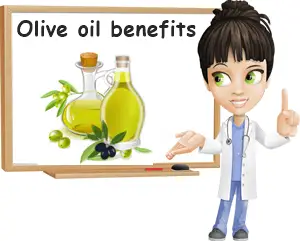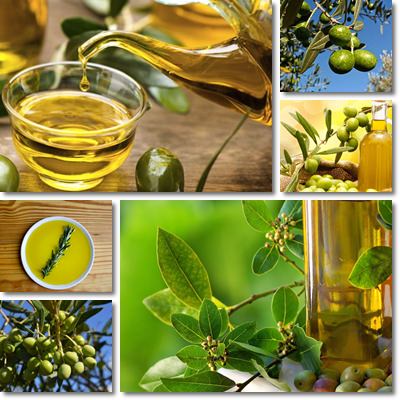Rich in powerful antioxidants and anti-inflammatory compounds, olive oil is considered to be the healthiest of all cooking oils. It has healthy monounsaturated Omega-3 fatty acids, but also much needed Omega-6 fatty acids, as well as several essential nutrients, notably vitamins E and K as well as small amounts of calcium, iron and potassium.
Regular consumption has been found to hold great health benefits, reducing inflammation in the body, supporting brain function and improving cardiovascular health, among others.
What makes olive oil so healthy?
We might be tempted to believe that all cooking oils are equally healthy, after all, they are all made from plants. What makes olive oil the healthiest choice is the method through which it is produced: cold pressing.
In simple words, olives of various ripening degrees are pressed together or crushed until they release all of their juice, water and oils. No harmful chemical solvents are used for extracting the oil. This, paired with its unique antioxidant, anti-inflammatory and nutritional value, makes olive oil one of the healthiest varieties of cooking oil.

Types of olive oil
Not all olive oil is the same. The manufacturing process employed for the production of the oil, the characteristics and properties of different olive varieties, weather conditions, type of soil and ripeness of the olives, content of water in the resulting oil, potential impurities or solid materials as well as indicators such as flavor, color, transparency, acidity together with storage facilities and packaging choice can all influence the quality of the oil.
When looking to choose the healthiest olive oil variety, keep in mind that there are the following four major classifications according to quality:
1) Extravirgin olive oil
In addition to a great flavor and a low acidity point, extravirgin olive oil is obtained from the first pressing, meaning the olives go through one session of crushing and the resulting oil is of premium quality. There is no refining, no heat processing and no chemical solvents are used for the extraction of the oil.
2) Virgin olive oil
This type is also obtained from the first pressing and has a low acidity point as well, but not as low as the extravirgin variety. Both varieties have a superior flavor profile and are best enjoyed uncooked. Overall, it is a good quality oil.
However, it is important to make sure the oil is not mixed with lower quality refined varieties or even olive pomace oil, so read the label for information.
3) Refined olive oil
Olive oils labelled as ‘refined olive oil’ or simply ‘olive oil’ are refined in order to improve their flavor and make it suitable for human consumption. This may include exposure to heat or use of chemical solvents. This type has a higher acidity
4) Olive pomace oil
After pressing the olives the first time, a trace amount of oil is still left in the olives, but cannot be extracter by further pressing them. In such cases, chemical solvents are used to obtain what is known as olive pomace oil.
After additional refining, the resulting oil is mixed with small amounts of quality extravirgin olive oil to give it flavor, which it lacks.
Despite being cheaper, there is a risk that unsuitable production procedures may result in the product containing dangerous carcinogenic compounds.

What is olive oil good for?
Regular, but moderate consumption of fresh olive oil, more exactly extravirgin olive oil can help improve several aspects of our health significantly.
Here are the most notable properties and health benefits of olive oil:
1) Good for the heart
Regular consumption of moderate amounts of extravirgin olive oil has been shown to hold impressive cardiovascular benefits. Olive oil contains oleic acid (Omega-9), linoleic acid (Omega-6) and alpha-linoleic acid (Omega-3).
These polyunsaturated and monounsaturated fatty acids have been shown to help lower LDL (bad) cholesterol levels in the blood and raise HDL (good) cholesterol levels, reducing the risk of artery plaque buildup and hypertension.
Also, due to the strong anti-inflammatory and antioxidant action of fatty acids such alpha-linoleic acid, extravirgin olive oil helps protect the inner lining of our blood vessels, further contributing to cardiovascular health.
The Mediterranean diet, promoting the regular consumption of fresh extravirgin olive oil, is believed to be responsible for a lower rate of cardiovascular disease.
2) Food for the brain
Our brain is made of and feeds off fats. Healthy unsaturated fatty acids, particularly Omega-3, are essential for proper brain development in children and have been found to support cognition in both children and adults.
Moreover, a compound in olive oil, oleocanthal, has been found to reduce the risk of developing Alzheimer’s disease, according to Chemical Neuroscience (study).
3) Rich source of antioxidants
Olive oil is a generous source of easily absorbable antioxidants known as polyphenols. Antioxidants counteract the harmful effects of free radicals, reactive oxygen molecules that cause damage, inflammation and favor the development of chronic disease in all its forms: cardiovascular disease, neurodenegerative diseases, cancer etc.
Oleuropein, a major antioxidant in olive oil, has been found to possess anticancer properties. Oleocanthal, found in extravirgin olive oil, is believed to reduce Alzheimer’s risks. Other antioxidants in olive oil boast cardiovascular benefits.
4) Boasts anti-inflammatory properties
The antioxidant polyphenol oleocanthal and the healthy Omega-3 fatty acids in extravirgin olive oil exert a significant anti-inflammatory action and offer protection against chronic diseases brought on by high inflammation levels.
It has been suggested that a moderate, yet regular consumption of extravirgin olive oil can help reduce inflammation in the body and help counteract its negative effects, contributing to good overall health.

5) Great for skin and hair
Extravirgin olive oil is great for dry and damaged hair. It can be applied directly on the hair for a deeply nourishing effect. It can be left on anywhere from 20 minutes to and hour or overnight, then washed off.
In addition to this, regular consumption of moderate amounts of the oil helps nourish hair from within and contribute to stronger, better looking hair. The antioxidant polyphenols, fatty acids and vitamin E in olive oil boast excellent emollient properties and are great for dry skin.
6) Anti-aging effect
It has been noted that people who have a healthy, moderate intake of extravirgin olive oil and other types of healthy fats have better looking skin and generally less wrinkles.
This is believed to be a cumulative effect of various compounds in olive oil, notably the unsaturated fatty acids, vitamin E and antioxidant polyphenols.
7) Easy on the digestive tract
Fats are one of three essential nutrients along with protein and carbohydrates. Despite it being an unpopular opinion, we actually need sufficient amounts of fats to digest food and absorb certain vitamins (A, D, E, K). Extravirgin olive oil is one of the best sources of healthy fats, best suited to replace unhealthier options in our diet.
8) Helps regulate intestinal transit
While dietary fiber is a great short-term solution for constipation and slow intestinal transit, fats are the ones that actually regulate transit and promote regular and easy bowel movements. Including sufficient amounts of healthy fats such as extravirgin olive oil in our diet can efficiently combat constipation and aid in improving hemorrhoid disease.
Conclusion
Considering its antioxidant, anticancer and anti-inflammatory properties as well as impressive cardiovascular, digestive and cognitive benefits, extravirgin olive oil is one of the healthiest, if not the healthiest option in terms of cooking oils.
Experts recommend replacing other unhealthier fat sources in our diet with extravirgin olive oil for the maximum benefits. However, as with all things, moderation is key as excesses of any kind are not good for us.
